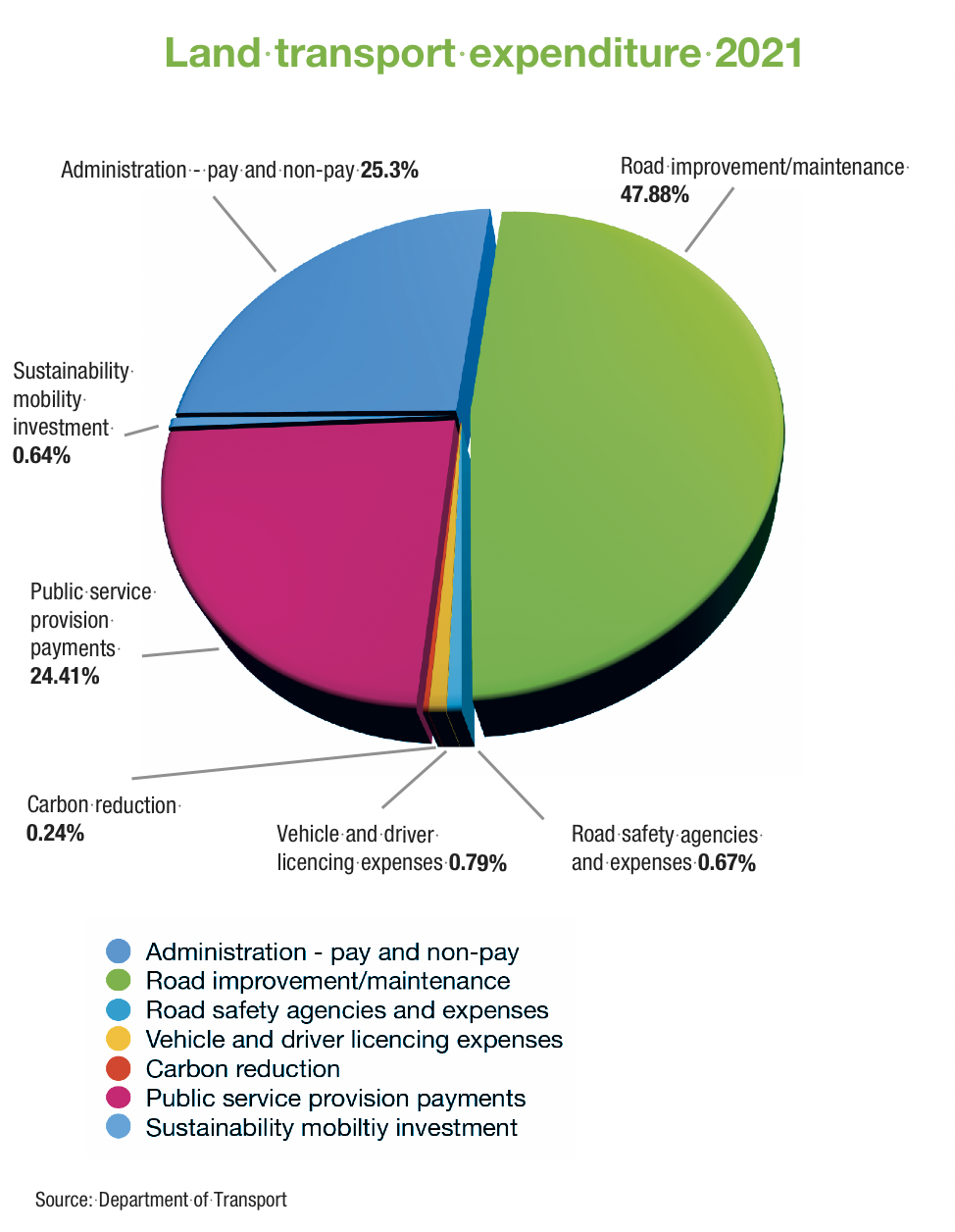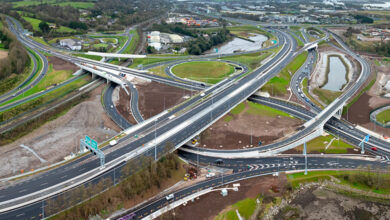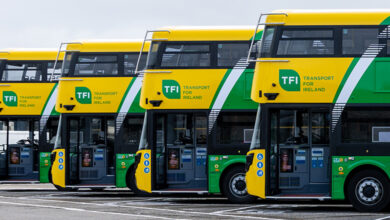Covid’s impact on transport laid bare

The Department of Transport’s latest annual report demonstrates the effects of the Covid-19 pandemic on the transport sector.
Published in April 2023, the report offers a comprehensive analysis on the effects of the Covid-19 pandemic on the Irish transport sector, including the supply chain disruptions which have been viewed as a catalyst to the inflation crisis still engulfing the Irish economy.
Economic experts such as Richard Wilding, professor of supply chain strategy at the UK’s Cranfield School of Management, have pointed to the ongoing global inflation crisis as having been rooted in the supply chain crisis which was caused by the disruption to the transport sector during the Covid pandemic.
The Department’s annual report demonstrates the impact the sector faced from the pandemic. “Within the aviation sector, cargo-only flights continued to operate but the grounding of the majority of scheduled passenger services, with the consequential loss of bellyhold capacity, had a significant impact on the price of air cargo,” the report states.
It further explains: “In the road haulage sector, the demand for use of the UK ‘land bridge’ for accessing EU markets fell considerably as a result of Brexit. This drove a simultaneous decline in Ireland-GB traffic and an increase in direct Ireland-EU traffic. However, land borders across the EU remained fully open and no delays, outside of the norm, were generally experienced.”
In the first half of 2021, the Government’s ‘living with Covid’ policy was operational, which resticted use of public transport and added additional cleaning procedures. The report explains how usership increased as the year progressed. “Daily passenger numbers across the Irish public transport network fluctuated significantly throughout the year, due to the capacity restrictions of 25 per cent, 50 per cent and 75 per cent in place at various times during the course of 2021. With the return to 100 per cent capacity in September 2021, passenger numbers rebounded positively from the lows of 10 per cent of pre-Covid levels experienced in 2020,” the report says.
Following the lockdowns in place throughout the State during the winter period of 2020, the report adds how “car traffic volumes through January and February 2021 reduced to approximately 50 per cent of pre-Covid-19 levels with a progressive return to approximately 100 per cent of normal traffic by September, continuing at this level through to December”.
“However, commercial traffic continued to operate at close to pre-Covid-19 levels throughout 2021 – pointing to the strength of economic activity throughout the year.”
Climate and adaption
Minister for Transport Eamon Ryan TD has previously outlined to eolas Magazine the “four pillars” of sustainable transport which he believes should be promoted and planned for by his department.
These four pillars are: the transition away from petrolium products, shifting reliance from private car-based transport modes, reducing the volume of transport, and increasing shared transport.
This model is in the context of the Climate Action Plan and the need to reduce emissions from the transport sector, with the sector accounting for 20 per cent of CO2 emissions in Ireland.
Climate Action Plan 2021 (CAP21) – which sets out the objectives of the Climate and Low Carbon Development (Amendment) Act 2021 – was published in November 2021. CAP21 aims to guide the transport sector to a 51 per cent emissions reduction in transport by 2030 by:
- enabling 500,000 daily sustainable travel journeys by 2030 through major public transport projects such as BusConnects and Connecting Ireland; the expansion of rail services, and cycling and walking infrastructure;
- increasing the use of biofuels in transport;
- expanding electrification of bus and rail fleets with 1,500 electric buses by 2030;
- increasing the number of EVs to circa one million by 2030; and
- updating the public transport and public fleets to low-emission alternatives.

Amid this backdrop, the report states that the Department “continued to progress implementation of the actions set out within the Sectoral Plan for Adaptation of Transport Infrastructure within the National Adaptation Framework, which are also reflected in the Climate Action Plan 2021”.
The report states that there were 47,700 EVs on Irish roads at the end of 2021, and the Department aims to grow usage by the EV grant scheme. The report further acknowledges the use of hydrogen and remodelling of the public sector fleet, although in 2021 these were at earlier stages than now in 2023.
Commenting on the report, Minister Eamon Ryan TD said that there had been “significant progress made towards achieving the commitments as set out in the Programme for Government”.
The annual report is the Department’s first annual report since the publication of its Statement of Strategy 2021-2023. The statement of strategy outlines a vision for transport in Ireland which is for “the people and places of Ireland, sustainably connected with each other and the world”.
The statement of strategy further outlines the mission of the Department of Transport to “deliver an accessible, efficient, safe, and sustainable transport system that supports communities, households and businesses”.
On the financial side, during 2021, 3,801 transactions were processed by the Department in 296 payment runs. 95.19 per cent of those were paid within the 15-day prompt payment legislation and 99.82 per cent of those were processed within the 30-day deadline.





